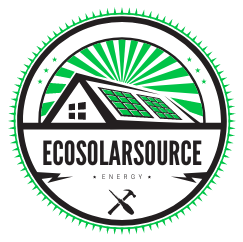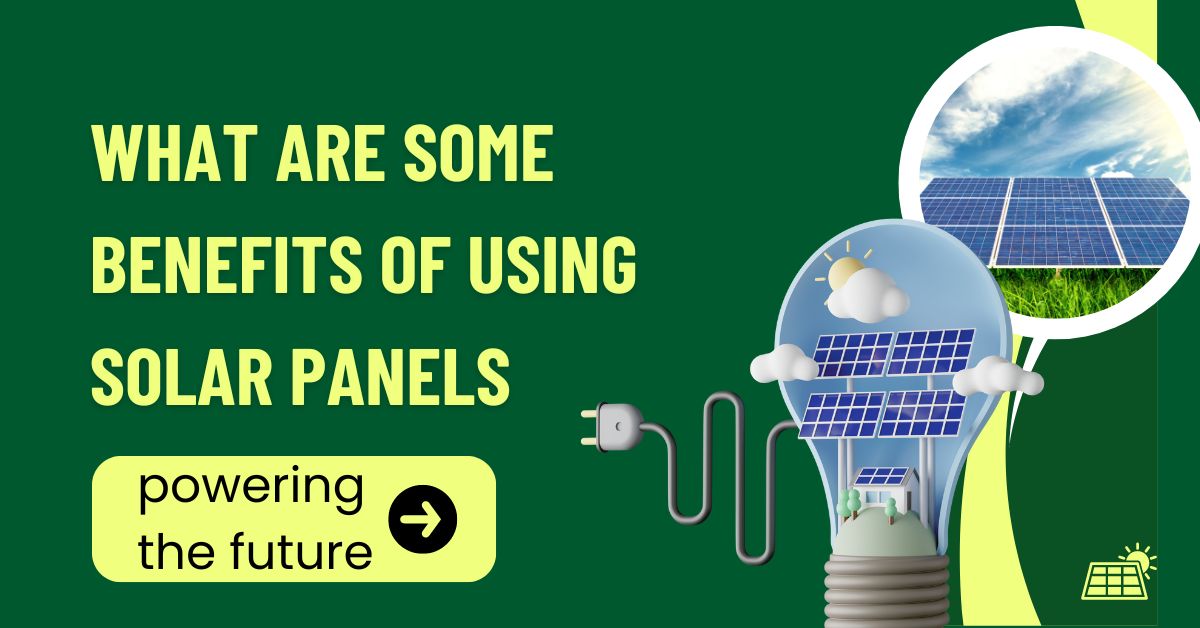What are Some Benefits of Using Solar Panels
Know the details about What are Some Benefits of Using Solar Panels, Solar panels offer numerous benefits, making them a smart investment for both individuals and businesses. One of the biggest advantages is the significant reduction in electricity bills, as solar energy harnesses free, abundant sunlight.
Solar power is also eco-friendly, reducing carbon emissions and reliance on fossil fuels, helping to combat climate change. It provides energy independence, especially in remote or off-grid areas, and increases property value. Solar panels require minimal maintenance and have a long lifespan, typically lasting 25-30 years. Additionally, governments often offer incentives or tax credits, making solar installation more affordable and appealing.
What are Some Benefits of Using Solar Panels
Table of Contents
- Introduction
- Understanding Solar Panels
- 2.1 What are Solar Panels?
- 2.2 Types of Solar Panels
- Environmental Benefits of Solar Panels
- 3.1 Reducing Greenhouse Gas Emissions
- 3.2 Decreasing Reliance on Fossil Fuels
- 3.3 Energy Independence and Security
- Financial Benefits of Solar Panels
- 4.1 Lower Energy Bills
- 4.2 Incentives, Tax Credits, and Rebates
- 4.3 Long-Term Return on Investment
- Technological and Energy Efficiency Benefits
- 5.1 Low Maintenance and Durability
- 5.2 Advances in Solar Technology
- 5.3 Energy Storage Solutions
- Social and Community Benefits of Solar Panels
- 6.1 Job Creation and Economic Growth
- 6.2 Improving Community Resilience
- Residential Benefits of Solar Panels
- 7.1 Increase in Property Value
- 7.2 Energy Autonomy
- Commercial and Industrial Benefits of Solar Panels
- 8.1 Cost Savings for Businesses
- 8.2 Enhancing Corporate Social Responsibility
- 8.3 Improving Brand Reputation
- Challenges and Considerations in Solar Adoption
- 9.1 Upfront Costs and Financing
- 9.2 Intermittency and Energy Storage
- 9.3 Space and Installation Requirements
- FAQs About What are Some Benefits of Using Solar Panels
- Conclusion
1. Introduction
In recent years, there has been a notable surge in the adoption of renewable energy solutions across the globe. Among these, solar power stands out as one of the most popular and accessible forms of clean energy. Solar panels, a key component of this technology, offer a multitude of benefits that extend beyond mere energy generation. From environmental advantages to financial savings, technological improvements, and societal impacts, the potential of solar energy is vast. This blog will delve deep into the many benefits of using solar panels, providing a comprehensive overview of why more individuals, businesses, and governments are embracing this sustainable energy source.
2. Understanding Solar Panels
What are Solar Panels?
The Solar panels, also known as photovoltaic (PV) panels, are devices that convert sunlight into electricity. Made up of many solar cells, which are usually composed of silicon, these panels capture sunlight and transform it into direct current (DC) electricity. An inverter then converts this DC electricity into alternating current (AC), which is the standard form of electricity used in homes and businesses.
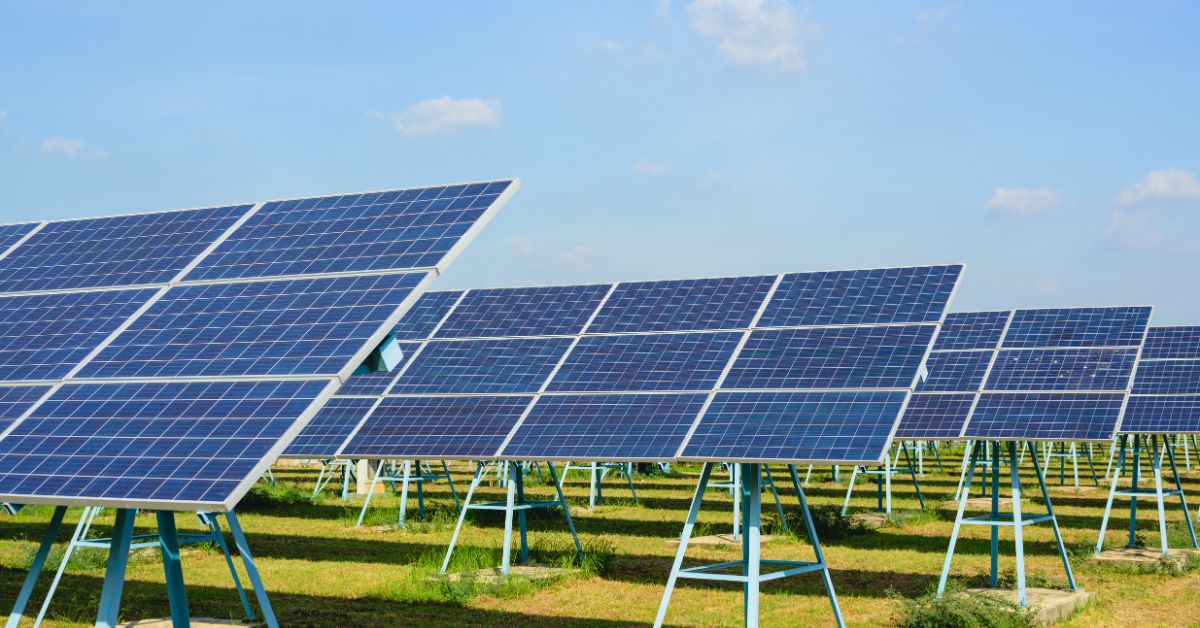
Types of Solar Panels
There are several types of solar panels available today, each with its own set of advantages and limitations:
- Monocrystalline Solar Panels: Known for their high efficiency and sleek design, these panels are made from a single, continuous crystal structure. They tend to be more expensive but offer better performance, especially in limited space.
- Polycrystalline Solar Panels: These panels are composed of multiple silicon crystals and are generally less expensive.
- Thin-Film Solar Panels: Made from a variety of materials, these panels are lightweight and flexible, making them suitable for unconventional installations. They have lower efficiency but are less expensive to produce.
3. The Environmental Benefits of Solar Panels
Reducing Greenhouse Gas Emissions
One of the most significant environmental benefits of using solar panels is their ability to reduce greenhouse gas emissions. Unlike traditional energy sources such as coal, natural gas, or oil, solar energy does not produce carbon dioxide (CO₂) or other harmful pollutants. By shifting away from fossil fuels and embracing solar power, individuals and communities can help combat climate change and reduce their carbon footprints.
Decreasing Reliance on Fossil Fuels
Fossil fuels, such as coal, oil, and natural gas, have been the primary sources of energy for centuries. However, they are finite resources, and their extraction and use contribute to environmental degradation. Solar panels offer a sustainable alternative by harnessing the sun’s energy, which is abundant and inexhaustible. The transition to solar power helps reduce the global reliance on fossil fuels, promoting a cleaner and more sustainable energy future.
Energy Independence and Security
Solar energy can play a critical role in promoting energy independence. By generating electricity locally from the sun, communities, and nations can reduce their dependence on foreign energy sources. This not only enhances national security but also stabilizes energy prices by protecting against the volatility of international energy markets.
4. Financial Benefits of Solar Panels
Lower Energy Bills
One of the most immediate and tangible benefits of installing solar panels is the reduction in electricity bills. As solar panels generate electricity from sunlight, homes and businesses can offset their consumption of grid electricity, leading to significant savings. The exact amount of savings depends on several factors, including the size of the solar system, local electricity rates, and the amount of sunlight the system receives.
Incentives, Tax Credits, and Rebates
In the United States, for example, there are federal tax credits, state rebates, and local incentives that can dramatically reduce the upfront costs of installing solar panels. These programs make solar power more accessible and affordable for both residential and commercial users.
Long-Term Return on Investment
While the initial investment in solar panels may seem significant, it is important to consider the long-term return on investment (ROI). Over time, the savings on electricity bills can exceed the initial cost of the system, resulting in a positive ROI. Additionally, as energy prices continue to rise, the cost savings from solar energy become even more substantial.
5. Technological and Energy Efficiency Benefits
Low Maintenance and Durability
Solar panels are highly durable and require little to no maintenance once installed. Most systems come with warranties ranging from 20 to 25 years, and the panels themselves are built to withstand harsh weather conditions, including rain, snow, and hail. As long as the system is properly installed, solar panels will continue to operate efficiently for decades.
Advances in Solar Technology
The field of solar technology is continuously evolving, with advancements in panel efficiency, energy storage, and system integration. For instance, newer solar panels can convert more sunlight into electricity, increasing their overall efficiency. Moreover, solar tracking systems allow panels to follow the sun’s movement throughout the day, further maximizing energy production.
Energy Storage Solutions
One of the challenges of solar energy is its intermittency; the sun does not shine 24 hours a day. However, recent developments in energy storage technology, particularly in battery storage, have mitigated this issue. Batteries can store excess solar energy generated during the day for use during the night or cloudy periods, ensuring a continuous supply of electricity.
6. Social and Community Benefits of Solar Panels
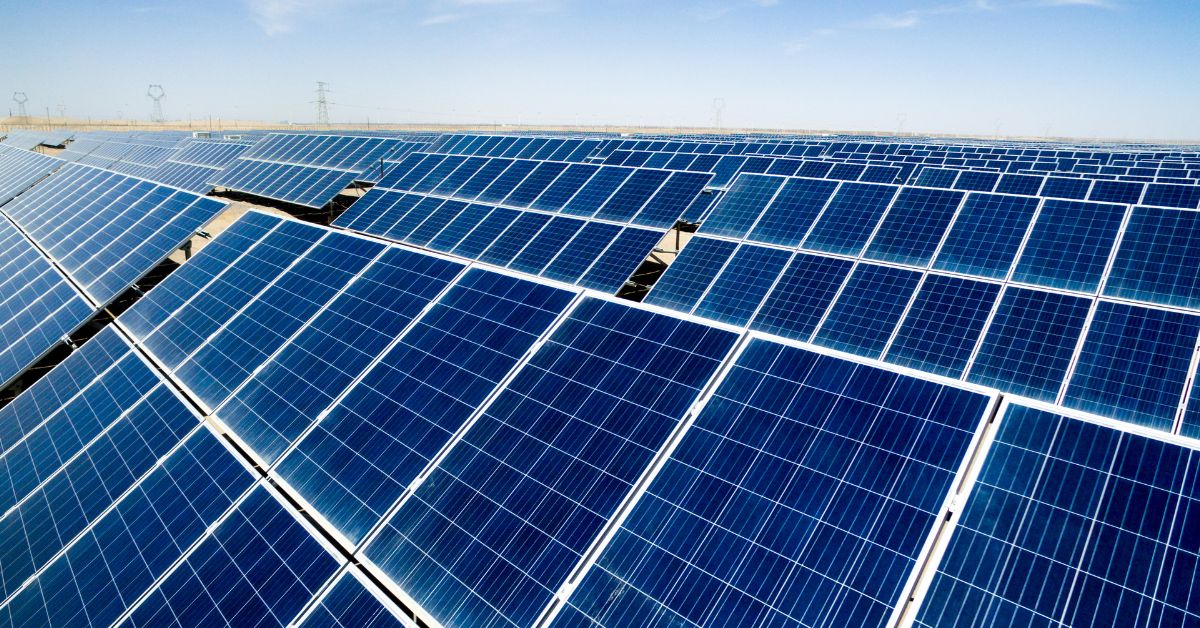
Job Creation and Economic Growth
Solar industry has become a significant driver of job creation and economic growth. As the demand for solar installations increases, so does the need for skilled labor, including engineers, electricians, and technicians. According to recent data, the solar industry now employs more workers than the coal, oil, and gas industries combined. By investing in solar power, communities can stimulate local economies and create sustainable, high-quality jobs.
Improving Community Resilience
In the face of natural disasters and grid failures, solar panels can enhance community resilience by providing a decentralized source of energy. When paired with battery storage systems, solar panels can continue to supply electricity during power outages, ensuring that essential services remain operational. This is especially important in areas prone to hurricanes, wildfires, or other climate-related events.
7. Residential Benefits of Solar Panels
Increase in Property Value
The Homes equipped with solar panels often see an increase in property value. Many homebuyers are attracted to the idea of owning a home with lower energy bills and reduced environmental impact. Studies have shown that homes with solar installations sell faster and for higher prices compared to homes without solar.
Energy Autonomy
For homeowners, solar panels offer the opportunity to achieve greater energy autonomy. By generating their electricity, homeowners can become less reliant on utility companies and the fluctuations of energy prices. This sense of independence and control over energy usage is a significant draw for many individuals.
8. Commercial and Industrial Benefits of Solar Panels
Cost Savings for Businesses
Commercial and industrial businesses can greatly benefit from installing solar panels. With large rooftop spaces or unused land, businesses can generate a significant portion of their energy needs through solar power, reducing operating costs. The savings on electricity bills can then be reinvested into the business, enhancing profitability and growth.
Enhancing Corporate Social Responsibility
Many businesses are now adopting solar energy as part of their corporate social responsibility (CSR) strategies. By transitioning to renewable energy, companies demonstrate their commitment to environmental sustainability, which can improve their reputation and brand image among consumers, investors, and employees.
Improving Brand Reputation
Sustainability has become an important factor in consumer decision-making. Businesses that adopt solar energy can enhance their brand reputation by aligning themselves with environmentally responsible practices. This not only attracts eco-conscious customers but also helps businesses stand out in competitive markets.
9. Challenges and Considerations in Solar Adoption
Upfront Costs and Financing
While the long-term benefits of solar panels are clear, the upfront costs can be a barrier for some individuals and businesses. Although prices have decreased significantly over the years, installing a solar system still requires a considerable initial investment. Fortunately, there are various financing options available, including solar loans, leases, and power purchase agreements (PPAs), which make solar more affordable.
Intermittency and Energy Storage
Solar energy is dependent on sunlight, which means it is intermittent by nature. At night or during cloudy days, solar panels do not generate electricity. This intermittency can be addressed by incorporating energy storage systems, such as batteries, which store excess energy for later use. However, energy storage systems can be expensive, adding to the overall cost of the solar installation.
Space and Installation Requirements
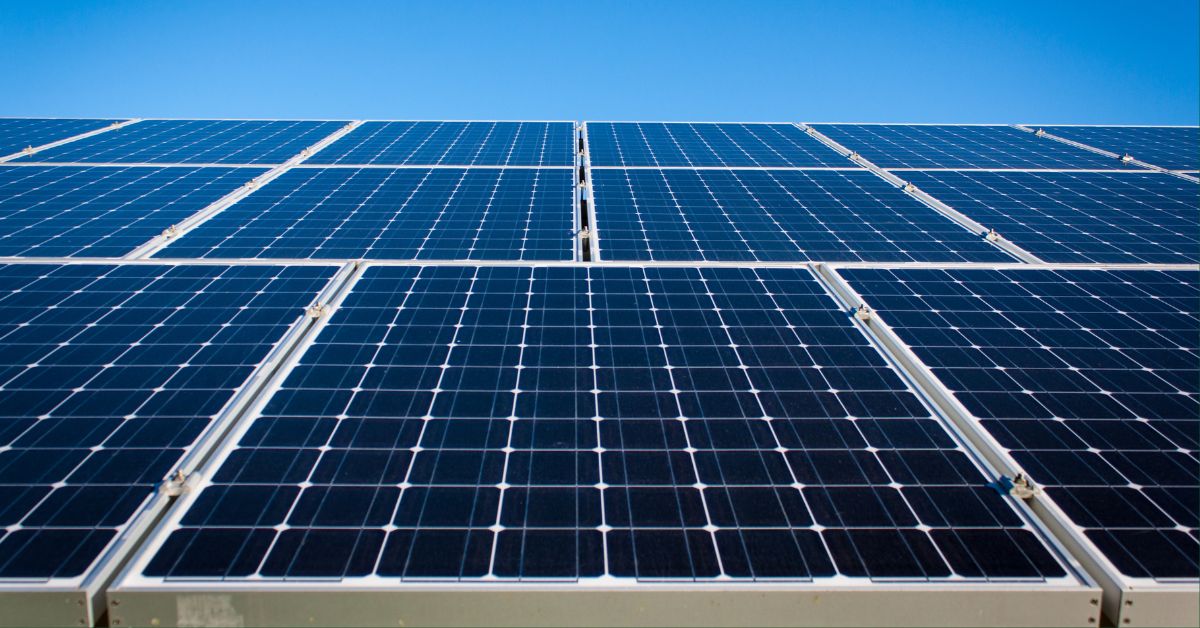
Solar panels require a significant amount of space to be effective, which can be a challenge for individuals or businesses with limited roof or ground space. Additionally, not all rooftops are suitable for solar installations, due to shading, structural issues, or orientation. Careful consideration of these factors is essential before investing in a solar energy system.
10. FAQs About What are Some Benefits of Using Solar Panels
- How do solar panels reduce electricity bills?
Solar panels generate free energy from the sun, decreasing reliance on the grid and lowering your monthly electricity expenses. - Can solar panels increase property value?
Yes, homes with solar installations often sell at a premium as buyers value energy efficiency and lower long-term utility costs. - Do solar panels work in cloudy weather?
Solar panels still generate energy on cloudy days, although production is reduced compared to sunny days. - How do solar panels contribute to environmental sustainability?
Solar power is clean, reducing carbon emissions and reliance on fossil fuels, helping combat climate change. - Can solar panels provide energy independence?
Yes, solar panels combined with battery storage allow homes to rely less on the grid, providing energy security during outages. - Are there maintenance costs associated with solar panels?
Solar panels generally require minimal maintenance, such as occasional cleaning, and have a long lifespan of 25+ years. - How do solar panels help reduce grid strain?
By generating your energy, solar panels reduce demand on the public grid, helping to prevent blackouts and stabilize supply. - Can solar panels be paired with other green technologies?
Solar panels integrate well with electric vehicles, heat pumps, and home battery systems, creating a fully sustainable energy ecosystem. - What are the financial incentives for installing solar panels?
Many regions offer tax credits, rebates, and incentives that reduce the upfront costs of solar panel installations. - How does using solar panels affect my carbon footprint?
By switching to solar energy, you can significantly reduce your household’s carbon emissions, lowering your overall carbon footprint.
Conclusion
Solar panels offer a wide range of benefits that span environmental, financial, technological, and social spheres. By harnessing the sun’s abundant energy, solar power reduces greenhouse gas emissions, lowers electricity bills, and promotes energy independence. Advances in technology and the availability of incentives make solar energy more accessible than ever before.
While there are challenges, such as upfront costs and space requirements, the long-term advantages of solar far outweigh these obstacles. As more individuals, businesses, and governments recognize the benefits of solar energy, it is clear that solar power will play a pivotal role in shaping a sustainable future. This is detailed information to What are Some Benefits of Using Solar Panels.
Click Here to Learn More About What are Some Benefits of Using Solar Panels
